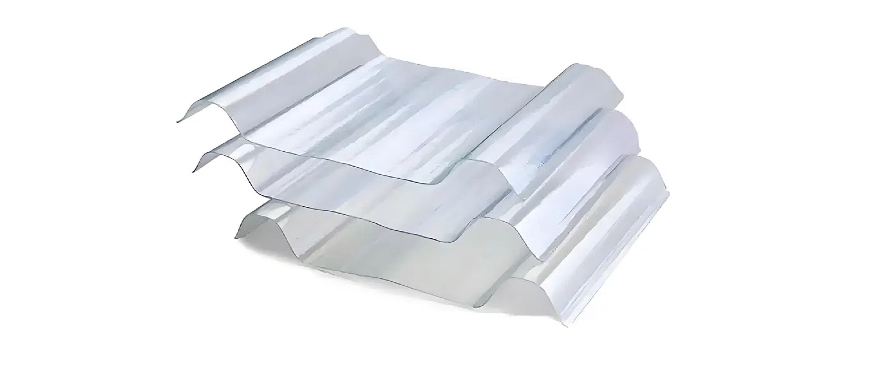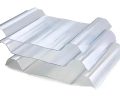
When comparing fiberglass sheet vs steel sheet, tensile strength is a critical factor. Fiberglass can achieve tensile strengths that match or even exceed those of steel, making it a viable alternative in many applications. This strength allows fiberglass sheets to handle significant loads while remaining lightweight. Additionally, fiberglass offers superior corrosion resistance compared to steel, which can degrade over time when exposed to harsh environments. The choice between fiberglass sheet vs steel sheet ultimately depends on the specific requirements of the project, including weight considerations, environmental factors, and the need for durability. Understanding these differences helps in selecting the right material for various construction and industrial uses.
Overview of Fiberglass Sheet vs Steel Sheet
The fiberglass sheet vs steel sheet comparison highlights significant differences in material properties and applications. Fiberglass sheets are composed of glass fibers and resin, offering unique advantages such as lightweight and corrosion resistance. In contrast, steel sheets are known for their strength and durability, making them suitable for heavy-duty applications. Understanding these differences is essential for selecting the appropriate material for specific needs.
Material Composition in Fiberglass Sheet vs Steel Sheet
The composition of fiberglass sheets involves combining glass fibers with a resin matrix, which provides structural integrity and flexibility. This composition contributes to the lightweight nature of fiberglass sheets, making them easier to handle and install. On the other hand, steel sheets are made from iron alloyed with carbon and other elements, resulting in a denser and heavier material. This fundamental difference in composition directly affects their performance in various applications.
Weight Considerations in Fiberglass Sheet vs Steel Sheet
Weight is a crucial factor when comparing fiberglass sheet vs steel sheet. Fiberglass sheets are significantly lighter than steel sheets, making them easier to transport and install. This lightweight property reduces the overall load on structures, which can be particularly beneficial in applications such as roofing and wall panels. In contrast, the heavier weight of steel sheets may require additional structural support, impacting design considerations and installation processes.
Strength and Durability in Fiberglass Sheet vs Steel Sheet
When assessing strength and durability in fiberglass sheet vs steel sheet, it is important to consider the different types of strength exhibited by each material. Steel sheets are renowned for their tensile strength, making them ideal for load-bearing applications. However, fiberglass sheets offer impressive flexural strength, allowing them to withstand bending forces without breaking. Additionally, fiberglass sheets are resistant to corrosion, while steel sheets may require protective coatings to prevent rust, especially in humid or corrosive environments.
Thermal and Electrical Insulation in Fiberglass Sheet vs Steel Sheet
Thermal and electrical insulation properties differ significantly in fiberglass sheet vs steel sheet. Fiberglass sheets provide excellent thermal insulation, reducing heat transfer and improving energy efficiency in buildings. This property makes them popular for use in insulation applications. In contrast, steel sheets conduct heat and electricity, which can be a disadvantage in situations where insulation is required. Proper insulation measures must be implemented when using steel sheets in certain applications.
Cost Factors in Fiberglass Sheet vs Steel Sheet
Cost is another important consideration when comparing fiberglass sheet vs steel sheet. Generally, fiberglass sheets may have a higher initial cost than steel sheets, primarily due to the manufacturing processes involved. However, the overall cost-effectiveness of fiberglass sheets can be realized through their lightweight nature, which can lower transportation and installation expenses. Additionally, the long-term benefits of reduced maintenance costs due to corrosion resistance can further justify the investment in fiberglass sheets.
Environmental Impact of Fiberglass Sheet vs Steel Sheet
Environmental considerations are becoming increasingly important in material selection. The fiberglass sheet vs steel sheet comparison reveals differences in environmental impact. Fiberglass sheets are often seen as a more environmentally friendly option due to their longevity and recyclability. While steel is recyclable, the energy required for steel production is significantly higher, contributing to a larger carbon footprint. Choosing fiberglass sheets may align better with sustainable building practices.
Applications of Fiberglass Sheet vs Steel Sheet
The applications of fiberglass sheets and steel sheets vary widely based on their material properties. Fiberglass sheets are commonly used in industries such as construction, automotive, and aerospace due to their lightweight, corrosion-resistant nature. They are often utilized in applications like roofing, wall panels, and insulation. Steel sheets, conversely, are predominantly used in structural applications, manufacturing, and heavy equipment due to their strength and durability.
Maintenance Requirements in Fiberglass Sheet vs Steel Sheet
Maintenance requirements differ significantly between fiberglass sheet vs steel sheet. Fiberglass sheets typically require minimal maintenance due to their corrosion resistance and durability. Regular cleaning may be sufficient to maintain their appearance and performance. Steel sheets, however, may necessitate routine inspections for rust and corrosion, especially in outdoor applications. Protective coatings and regular maintenance can prolong the lifespan of steel sheets, but this adds to the overall upkeep costs.
Innovations in Fiberglass and Steel Technologies
Both fiberglass and steel technologies continue to evolve, leading to improved performance and expanded applications. Innovations in fiberglass include advancements in resin formulations and fiber treatments, enhancing thermal and structural properties. Similarly, advancements in steel production techniques aim to improve strength while reducing weight, making steel sheets more versatile. Keeping abreast of these developments can aid in making informed material selections for future projects.
Future Trends in Material Selection: Fiberglass Sheet vs Steel Sheet
As industries evolve, future trends in material selection will increasingly consider performance, sustainability, and cost-effectiveness. The fiberglass sheet vs steel sheet discussion will likely continue to adapt to emerging technologies and environmental concerns. Fiberglass may see greater adoption due to its lightweight properties and reduced environmental impact, while steel will focus on enhancing strength-to-weight ratios and sustainability practices. Staying informed about these trends can facilitate strategic material choices.
Fiberglass Sheet vs Steel Sheet: A Comprehensive Content
What are the key differences between fiberglass sheet vs steel sheet? Both materials serve a variety of applications across numerous industries, but they have distinct properties that make them suitable for different purposes. Understanding fiberglass sheet vs steel sheet is crucial for selecting the right material for specific projects. Fiberglass sheets, made from glass fibers and resin, are known for their lightweight and corrosion-resistant characteristics. Steel sheets, on the other hand, are recognized for their strength and durability. The following sections will delve into the specifics of these materials, including their properties, advantages, and applications in the context of fiberglass sheet vs steel sheet.
Material Composition and Properties in Fiberglass Sheet vs Steel Sheet
Fiberglass sheets are composed of woven glass fibers embedded in a resin matrix, providing a lightweight yet strong material. This combination allows fiberglass sheets to be highly resistant to corrosion, moisture, and various chemicals, making them suitable for applications in harsh environments. The typical density of fiberglass sheets ranges from 1,500 to 2,000 kg/m³, which contributes to their lightweight nature compared to many metals.
Steel sheets are made from iron alloys, primarily iron and carbon. The density of steel is significantly higher than that of fiberglass sheets, generally around 7,850 kg/m³. This higher density translates to greater strength and rigidity, which is often necessary in structural applications. However, this strength comes at the cost of increased weight, making steel sheets less desirable in situations where weight reduction is a priority.
Weight Considerations in Fiberglass Sheet vs Steel Sheet
When comparing fiberglass sheet vs steel sheet, weight plays a crucial role. The lightweight nature of fiberglass sheets allows for easier handling and installation. In applications where reducing the overall weight of a structure is critical, such as in the automotive or aerospace industries, fiberglass sheets provide a significant advantage. The lower weight of fiberglass sheets also results in less stress on supporting structures, which can enhance the overall longevity of a project.
Conversely, while the weight of steel sheets can be a disadvantage in some applications, their robustness can be beneficial in others. For instance, in construction, the added weight of steel sheets can contribute to the stability of a structure. Understanding the implications of weight in the context of fiberglass sheet vs steel sheet is essential when choosing the right material for a given application.
Flexible Fiberglass Tube: Lightweight and Durable Options
Strength and Durability in Fiberglass Sheet vs Steel Sheet
Strength is a major factor in the fiberglass sheet vs steel sheet discussion. Steel sheets are renowned for their high tensile strength, making them ideal for structural applications that require support and stability. They can withstand heavy loads and resist deformation, which is why steel sheets are often used in construction, bridges, and heavy machinery.
Fiberglass sheets, while not as strong as steel sheets in terms of tensile strength, have unique advantages. They are less likely to corrode, rust, or dent, which can lead to longer lifespans in certain applications. This resistance to environmental factors makes fiberglass sheets suitable for outdoor applications, such as roofing and siding, where exposure to the elements can compromise other materials.
Cost Factors in Fiberglass Sheet vs Steel Sheet
Cost considerations also come into play when evaluating fiberglass sheet vs steel sheet. Generally, fiberglass sheets can be more expensive upfront due to the manufacturing processes involved in producing high-quality fiberglass products. However, the long-term savings associated with fiberglass sheets—such as lower maintenance costs and longer service life—can offset the initial investment.
Steel sheets tend to be less expensive on a per-unit basis. However, their susceptibility to rust and corrosion in certain environments can lead to higher maintenance and replacement costs over time. The cost-effectiveness of each material will vary based on the specific application and environment in which they are used, making a careful analysis of fiberglass sheet vs steel sheet essential.
Thermal Insulation Properties in Fiberglass Sheet vs Steel Sheet
Another critical aspect of the fiberglass sheet vs steel sheet comparison is thermal insulation. Fiberglass sheets have superior insulating properties due to their composition. They are effective at reducing heat transfer, which makes them an ideal choice for applications requiring thermal efficiency. This feature is particularly beneficial in construction, where insulation plays a significant role in energy efficiency and occupant comfort.
Steel sheets, while strong, are poor insulators. They conduct heat readily, which can lead to higher energy costs in applications requiring temperature control. For instance, buildings that utilize steel sheets may require additional insulation materials to achieve the desired thermal performance, adding to overall project costs.
Chemical Resistance in Fiberglass Sheet vs Steel Sheet
When assessing fiberglass sheet vs steel sheet, chemical resistance is another vital factor. Fiberglass sheets exhibit excellent resistance to a wide range of chemicals, including acids, alkalis, and solvents. This makes them suitable for use in chemical processing facilities, laboratories, and environments where exposure to corrosive substances is common.
Steel sheets, while durable, are prone to corrosion when exposed to moisture and certain chemicals without adequate protective coatings. Depending on the environment, this can result in significant maintenance challenges for steel sheets, while fiberglass sheets often require less upkeep in similar conditions.
Key Features of an FRP Cable Threading Pipe Factory Explained
Environmental Impact of Fiberglass Sheet vs Steel Sheet
The environmental impact of materials is an increasingly important consideration in many industries. Fiberglass sheets are often seen as more environmentally friendly due to their durability and longevity, which can reduce the frequency of replacements. Additionally, fiberglass can be manufactured with recycled materials, further decreasing its environmental footprint.
Steel sheets, while recyclable, require significant energy to produce and recycle. The mining and processing of steel can lead to environmental degradation, and their production often contributes to higher carbon emissions. Understanding the environmental implications of fiberglass sheet vs steel sheet can guide industries toward more sustainable choices.
Application Scenarios for Fiberglass Sheet vs Steel Sheet
In terms of applications, fiberglass sheets excel in industries such as automotive, aerospace, and marine, where weight reduction and corrosion resistance are critical. They are commonly used in components like body panels, boat hulls, and insulation materials.
Steel sheets, on the other hand, are preferred in construction, manufacturing, and heavy machinery applications where strength and load-bearing capabilities are paramount. Their versatility allows for extensive use in structural elements, roofing, and siding.
Maintenance Considerations in Fiberglass Sheet vs Steel Sheet
Maintenance is another factor to consider in the fiberglass sheet vs steel sheet comparison. Fiberglass sheets typically require minimal maintenance due to their resistance to environmental factors. Regular cleaning may be sufficient to maintain their appearance and functionality, making them a practical choice for many applications.
Steel sheets, however, often require ongoing maintenance to prevent rust and corrosion. This may include applying protective coatings or treatments, which can add to long-term costs and labor requirements. Analyzing maintenance needs is essential when evaluating the overall efficiency of fiberglass sheet vs steel sheet in specific applications.
Final Thoughts on Fiberglass Sheet vs Steel Sheet
In summary, understanding the differences in properties, applications, and implications of fiberglass sheet vs steel sheet is essential for making informed material choices. Each has its advantages and drawbacks that cater to specific needs in various industries. Whether opting for the lightweight, corrosion-resistant fiberglass sheets or the robust, durable steel sheets, the right choice will depend on the specific requirements of the project at hand. Careful consideration of all factors, including cost, weight, strength, and environmental impact, will guide the decision-making process in choosing between fiberglass sheet vs steel sheet.
Top FRP Cable Threading Pipe Suppliers You Should Know
FAQs about Fiberglass Sheet vs Steel Sheet
Yes, fiberglass sheets can replace steel sheets in many applications due to their comparable strength and lighter weight. They also offer advantages in corrosion resistance, making them suitable for various environments.Fiberglass has a lower density than steel, making it significantly lighter. This characteristic allows for easier handling and installation, especially in applications where weight is a critical factor.
Fiberglass sheets can have a tensile strength that matches or even exceeds that of steel sheets, depending on the specific type of fiberglass used and the application requirements.Fiberglass sheets are highly durable and resistant to corrosion, moisture, and chemicals. While steel can rust and degrade over time, fiberglass maintains its structural integrity under various environmental conditions.

As the editor of GangLong Fiberglass, I have years of experience and in-depth research, focusing on cable tray products, fiberglass solutions, and grille systems. I incorporate years of industry insights and practical experience into every content, committed to promoting the progress of the industry. At GangLong Fiberglass, my commitment is reflected in every product, from innovative cable trays to durable fiberglass solutions and sturdy grille systems. As an authoritative voice in the industry, my goal is to provide valuable information to professionals and businesses and promote forward-looking solutions.


